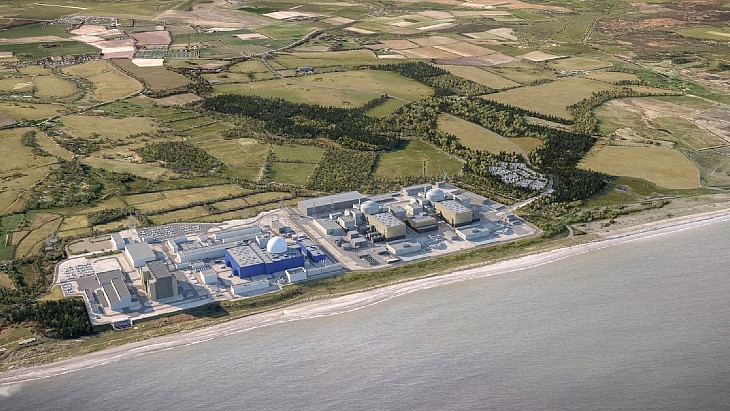The licence application was initially submitted in 2020, and despite it having met "almost all" regulatory requirements, two issues prevented the granting of a licence in 2022 - relating to the shareholders' agreement and the ownership of the land at the site. The ONR said at that time it would carry out a "proportionate reassessment" once those two issues had been "resolved to its satisfaction". It has now done so and recommended the granting of the nuclear site licence.
The issuing of the licence is a significant step in the long-running Sizewell C process, but it does not permit the start of nuclear-related construction at the site - instead it formalises ONR's regulatory responsibility and allows it to require project company Sizewell C Ltd to request permission for the start of nuclear-related construction.
It is the first site licence issued by the ONR since the one issued for Hinkley Point C in 2012 and it means that Sizewell C has a legal responsibility to comply with health and safety and nuclear security regulations and needs the project to meet 36 conditions attached to the licence covering the design, construction, operation and decommissioning of the plant.
ONR CEO Mark Foy said: "I am pleased to confirm that following extensive engagement and review by the ONR team, our assessment of the Sizewell C application is complete and a nuclear site licence has been granted. The licensing process is fundamental in confirming that operators of a nuclear site are ready and able to meet their obligations under the nuclear site licence, to protect their workforce and the public.
"The granting of this licence is one step in ONR's process, allowing us to provide greater regulatory oversight, advice and challenge to the licensee as they progress their plans. We will continue working with Sizewell C to ensure that the highest levels of safety and security are met."
Sizewell C director of safety, security and assurance, Mina Golshan, said: "Securing a nuclear site licence is a show of confidence from our nuclear regulator that we have a suitable site, that we can achieve a safe design replicated from Hinkley Point C, and that we have a capable organisation ready to begin major construction work. It’s a huge milestone and demonstrates that this project is firmly on track."
The EDF-led plan is for Sizewell C to feature two EPRs producing 3.2 GW of electricity, enough to power the equivalent of around six million homes for at least 60 years. It would be a similar design to the two-unit plant being built at Hinkley Point C in Somerset, with the aim of building it more quickly and at lower cost as a result of the experience gained from what is the first new nuclear construction project in the UK for about three decades.
EDF agreed in October 2016 with China General Nuclear (CGN) to develop the Sizewell C project to the point where a final investment decision could be made. EDF had an 80% stake and CGN a 20% stake. However, the so-called "golden era" of UK-China relations has ended in recent years with the UK government citing security concerns as it reviewed and blocked Chinese investments in UK infrastructure. In November 2022, the UK said it would invest GBP679 million (USD845 million) and become a 50% partner with EDF in the Sizewell C project. A further GBP511 million of funding was made available to the project in summer 2023, with the government funding designed to get the project to the final investment decision. EDF said in November 2022 that it planned to "retain only a minority stake in the final investment decision - a maximum of 20%".
The UK government has been seeking investment in the Sizewell C project, launching a pre-qualification for potential investors as the first stage of an equity raise process last September. It has also taken legislation through Parliament allowing a new way of funding new large infrastructure projects - a Regulated Asset Base (RAB) funding model, which can see consumers contributing towards the cost of new nuclear power plants during the construction phase. Under the previous Contracts for Difference system developers finance the construction of a nuclear project and only begin receiving revenue when the station starts generating electricity.
In January, a further GBP1.3 billion of government funding was approved allowing for necessary infrastructure work such as roads and rail lines to continue pending a final investment decision being taken. In March Sizewell C Ltd, a standalone company majority-owned by the UK government, signed a deal with EDF Energy to purchase the freehold of the land which will be used for the new power plant.
Minister for Nuclear and Renewables Andrew Bowie said: "Sizewell C will be the cornerstone of the UK's clean energy transition, supplying six million homes with green energy for decades. Obtaining a nuclear site licence is a significant achievement and should instil further confidence from investors - bringing us another step closer towards reaching a final investment decision this year."
Sizewell C Ltd said that earthworks are under way at the site, that the process of raising private equity from investors "continues to make good progress" and "the project is anticipating taking a Final Investment Decision in the coming months".








_97013.jpg)






